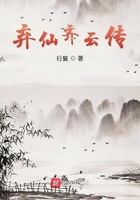However that might be, the pain and difficulty with which it took every step were not to be mistaken; and the distress and fondness of the mother, her perplexity as the flock passed gradually out of sight, the effort with which the poor lamb contrived to keep up a sort of trot, and their mutual calls and lamentations were really so affecting, that Ellen and I, although not at all lachrymose sort of people, had much ado not to cry. We could not find a boy to carry the lamb, which was too big for us to manage;--but I was quite sure that the ewe would not desert it, and as the dark was coming on, we both trusted that the shepherds on folding their flock would miss them and return for them;--and so I am happy to say it proved.
Another turning of the dell gives a glimpse of the dark coppice by which it is backed, and from which we are separated by some marshy, rushy ground, where the springs have formed into a pool, and where the moor-hen loves to build her nest. Ay, there is one scudding away now;--I can hear her plash into the water, and the rustling of her wings amongst the rushes. This is the deepest part of the wild dingle. How uneven the ground is! Surely these excavations, now so thoroughly clothed with vegetation, must originally have been huge gravel pits; there is no other way of accounting for the labyrinth, for they do dig gravel in such capricious meanders; but the quantity seems incredible. Well! there is no end of guessing! We are getting amongst the springs, and must turn back. Round this corner, where on ledges like fairy terraces the orchises and arums grow, and we emerge suddenly on a new side of the dell, just fronting the small homestead of our good neighbour Farmer Allen.
This rustic dwelling belongs to what used to be called in this part of the country 'a little bargain': thirty or forty acres, perhaps, of arable land, which the owner and his sons cultivated themselves, whilst the wife and daughters assisted in the husbandry, and eked out the slender earnings by the produce of the dairy, the poultry yard, and the orchard;--an order of cultivators now passing rapidly away, but in which much of the best part of the English character, its industry, its frugality, its sound sense, and its kindness might be found. Farmer Allen himself is an excellent specimen, the cheerful venerable old man with his long white hair, and his bright grey eye, and his wife is a still finer. They have had a hard struggle to win through the world and keep their little property undivided; but good management and good principles, and the assistance afforded them by an admirable son, who left our village a poor 'prentice boy, and is now a partner in a great house in London have enabled them to overcome all the difficulties of these trying times, and they are now enjoying the peaceful evenings of a well-spent life as free from care and anxiety as their best friends could desire.
Ah! there is Mr. Allen in the orchard, the beautiful orchard, with its glorious gardens of pink and white, its pearly pear-blossoms and coral apple-buds. What a flush of bloom it is! How brightly delicate it appears, thrown into strong relief by the dark house and the weather-stained barn, in this soft evening light! The very grass is strewed with the snowy petals of the pear and the cherry.
And there sits Mrs. Allen, feeding her poultry, with her three little grand-daughters from London, pretty fairies from three years old to five (only two-and-twenty months elapsed between the birth of the eldest and the youngest) playing round her feet.















